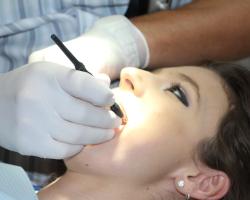Colorectal cancer (colon and rectum) is the second-most-frequent malignant cancer in Poland - over 14 thousand cases are diagnosed annually. The risk increases with age, the greatest is among people over 65 years of age.
The disease most often develops over a dozen years, and starts from mild abnormalities, so-called polyps, which at an early stage usually do not cause any symptoms. According to scientific estimates, their removal may reduce the risk of colon cancer by 60 to 90 percent. An early-detected cancer is very often curable. That is why preventive tests are so important.
Free-of-charge, prophylactic colonoscopy - for whom?
Prophylactic, free-of-charge colonoscopies have been performed since the year 2000 as part of Screening Tests for early detection of colorectal cancer financed by the Ministry of Health. Individuals aged from 55 to 64 years have been receiving named invitations to the programme since 2012. The invitation may not be transferred to another person, and it specifies a suggested date for the test. A patient may either change the date, or withdraw from the test at any time.
If someone has not received an invitation to a prophylactic colonoscopy, and - among others - meets the age criteria (50-65 years), he/she can apply for the test individually or under a referral issued by a primary-care physician.
Additional criteria include no symptoms that might indicate colorectal cancer, such as gastrointestinal bleeding (blood in stool), diarrhoea or constipation that has occurred in the past few months and their cause is not known, and also weight loss and anaemia of unexplained origin.
“Individuals having such symptoms should be subjected to diagnostic tests (including colonoscopy), but financed by the National Health Fund, and not under the prophylactic programme financed by the Ministry of Health", says Prof. Jarosław Reguła, the Manager of the Oncological Gastroenterology Clinic at the Centre of Oncology in Warsaw.
How to prepare for a colonoscopy
A colonoscopy is a look at "the centre" of the entire colon using a flexible instrument inserted through the anus.
Before the examination, the intestine should be properly cleaned of food residues. This is usually done by the application of a laxative drug. The patient should remember that at least three days before the test he/she should refrain from eating stone fruit, linseed, and poppy. A light diet based on gruel, rice, cooked meat and fish, and still beverages, is recommended.
On the day of examination, the patient should be fasting (you can drink water 2 hours before the test, and in the case of tests performed under local anaesthesia - 6 hours before the test).
In the opinion of Prof. Reguła, Polish citizens do not fully exploit the opportunities offered by the programme of free screening tests for colorectal cancer. According to his data, only 25 to 35 percent of the population of Warsaw and its neighbouring area respond to invitations to a test.
Contraindications for colonoscopy
Before the test, each patient completes a survey, where the information about his/her current state of health is gathered. Its objectives include the identifying of individuals with contraindications to performing a colonoscopy. The most important are a large aortic aneurysm, recent myocardial infarction, pulmonary embolism, severe inflammation of the bowel, suspected bowel perforation, mechanical obstruction of bowel, II and III trimester of pregnancy.
Individuals who have been tested by a colonoscopy in the last 10 years are also excluded from the test.









Comments (0)